“The Hub launched with a core mission of getting Canadians thinking about the future. We’ve been stuck in the doldrums, pessimistic and polarized, for too long. To lay out a roadmap for the next 30 years of Canadian life, we asked our contributors to pinpoint the most consequential issue, idea or technology for the country in 2050. This series of essays by leading thinkers will illuminate Canada’s next frontier.”
With media reports that a federal election campaign will kick off as early as Sunday, Canadians will have the opportunity to reflect on the sweeping developments since the last election in 2019 and what they mean for the country’s future.
Although the COVID-19 pandemic is far from over, there’s certainly a sense that the extraordinary experience of the past 16 months and counting will have major economic, political, social and implications over the long-term. Events like this pandemic don’t usually just go away. They tend to have paradigmatic consequences.
Many public policy issues will need to be revisited and debated: work and the economy, national emergency preparedness, the functioning of our democratic and parliamentary institutions, the current and future challenges posed by climate change, reconciliation and addressing systemic racism, to name just a handful.
One public policy area that has been clearly disrupted by COVID-19 and yet still has not generated much attention among the political parties or mainstream media is foreign policy and Canada’s place in the world.
The pandemic has exacerbated tensions between the U.S. and China, led to new questions about the future of globalization, and contributed to a range of international issues including the regulation of internet technologies, the future of cyber security, and the risks of underinvestment in public health. It’s fair to say that there hasn’t been this much global flux since the end of the Cold War.
For Canada, as a middle power with a strong historical affinity to the international rules-based system, these pandemic-induced questions are a big deal. Take the U.S.-China rivalry, for instance. A renewed “great power competition” between our first and second largest trading partners will necessarily have major economic and national security implications for us.
Yet Canadians could be forgiven for not fully understanding the magnitude of this global issue or others in light of the relative inattention paid to foreign policy in our political debates and news reporting. One gets the sense that we’re collectively stuck in a romanticized, almost fairy tale, conception of Canada’s place in the world.
As someone who specializes in global affairs, I regularly speak to friends, family, and colleagues about Canadian foreign policy whenever I can. It’s not uncommon for these conversations to resemble what one might describe as a fairy tale: an evil-doer causes great harm or a tragic event occurs in a country faraway; Canada with its diplomats, mediators and peacekeepers, driven by their expertise and moral high-ground, swoops in to rectify the issue; they fight a tough battle to combat evil and, once the issue is resolved, the faraway country graciously thanks Canada and the Canadians come back home in triumph with metaphorical crowds cheering.
Given this romanticized view of Canada’s foreign policy, it’s no surprise that domestic polling tends to show that Canadians have an inflated view about our role in the world. In a 2018 Abacus poll, for instance, 91 per cent of Canadians believed that Canada does more good in the world than harm.
While this sentiment about our perceived global goodness is all good and dandy — and has benefitted us when we travel with our embroidered Canadian flag patches on our luggage — when I try to delve in deeper to what people think about Canada’s actual foreign policy agenda, including its objectives and accomplishments, people regularly draw a blank.
Regardless of background and profession, it seems that Canadian foreign policy rarely crosses people’s minds. It’s neither typically a voting issue for Canadians nor a major wedge issue among partisans.
The real story — not the romanticized one — is less of a fairy tale. Despite Prime Minister Justin Trudeau’s claim in 2015 that “Canada is back,” it did not turn out quite the way.
While the government did demonstrate some international leadership in relocating 25,000 Syrian refugees in 2015, conduct moderately successful USMCA negotiations, and gain international fame and traction from Trudeau’s Rolling Stones feature, which led to a fleeting moment when non-Canadians were actually interested in Canada, other foreign policy objectives fell short.
From tense relationships and issues with China and Saudi Arabia, to our failed Mali peacekeeping mission, to a historic low number of peacekeeping missions since Mali, to decreased spending on foreign aid, which sat at 0.27 per cent of GNI — way below the international benchmark of 0.7 per cent of GNI.
And this was all before the loss of a United Nations Security Council seat to Norway and Ireland.
The issue that dare not speak its name
While Canadian foreign policy has benefited for some time from a fairy tale narrative, like most fairy tales, it’s not reality. There are many reasons why our foreign policy has not been robust in recent years, but a contributing factor has been a lack of political attention.
That reality was extremely clear during the last federal election.
In the fall of 2019, I was writing a masters-level research paper about Canadian media’s coverage of foreign policy. When the Munk Debates announced it would host a leaders debate dedicated to foreign policy, I was thrilled. Not only was this a perfect debate for my major research project, but as a student of global affairs I was excited to hear what party leaders had to say about their respective visions of Canadian foreign policy and Canada’s role on the international stage.
But, while Andrew Scheer, Elizabeth May and Jagmeet Singh confirmed their participation, Prime Minister Trudeau declined to take part in the 2019 debate. Munk Debates had to cancel the event, since it didn’t make sense to have a debate without the incumbent prime minister.
To say that it was a disappointment would be an understatement.
Similar trends followed suit. During the 2019 English-language debate, foreign policy was barely discussed, and was mostly forgotten while the politicians were throwing jabs at each other. The only time foreign policy was really discussed was during the 2019 French-language debate but of course that debate was not totally accessible to voters, given that most Canadians do not speak French.
Months after the federal election, I completed my major research paper with disappointing results. In the time period from August to November 2019 (which covered the pre-election and election period), foreign policy issues made up less than 9 percent of the Globe and Mail’s election coverage. While it’s understandable that these issues may not dominate the news, it still seemed too low.
When I discussed these findings at a student-led conference at the University of Toronto, some attendees seemed non-plussed. One asked me: “Why should we care? What happens to other parts of the world is their concern and not ours.”
Well, they’ve spoken too soon.
New World Disorder
In the intervening time, COVID-19 has ravaged the world over and negatively impacted nations in various ways. In the midst of the pandemic, one major lesson that we have all learned is how extremely interconnected and interdependent Canada is with other countries, especially when fighting an indiscriminate foe like a virus.
As discussed above, the pandemic has both catalysed and accelerated a number of foreign policy issues that will have major implications for Canada. Take climate change, for instance. Due to issues like food insecurity, destruction of homes, and the rise of climate migrants, Canada will have to face climate change head on and that will necessarily involve cooperation with others around the world.
Canadians seem to agree. They recognize that Canada’s future rests in more, not less, global orientation. The Canadian International Council’s 2021 “Foreign Policy by Canadians” report showed, for instance, that 65 percent of Canadians support Canada helping developing nations in COVID-19 recovery; a large majority agree that Canadian companies operating overseas should abide by the same human rights (89 percent) and environmental (88 percent) standards as they do at home; 69 percent support Canada building alliances with other liberal democracies to defend the international rules-based order and to combat China and Russia; and 69 percent support Canada partnering with the oil and gas industry to help finance Canada’s transition to clean energy.
These are just a few results out of the many presented in the report. But overall, the majority agree that there ought to be more consistency between Canada’s foreign and domestic policy. That is even more so the case with Indigenous issues. Despite it not being an official theme in the study, the general belief was that Canada’s domestic policies must reflect its international rhetoric on dignity and human rights.
By not being prepared for the changing global landscape, Canada and its interests will be at a great disadvantage. Instead of more fairy tales, we need action on the global stage.
It’s disappointing therefore to see the government not better aligning rhetoric and action. In the most recent federal budget, for instance, a robust allocation of foreign policy funding is missing. While international assistance has risen to 0.3 per cent of GNI, and the federal budget allocated $1.4 billion in international assistance over the next five years, we’re still lagging behind according to some experts.
In fact, according to Nicolas Moyer, the CEO of Cooperation Canada, international assistance funding was essentially treated as an afterthought, “in a moment where the world is facing its greatest crisis of a generation.” He rightfully asked, “where is Canadian leadership on the international stage?” And I’d ask a further question: is it too late to get back on the right track?
But maybe not all is lost. Conservative party leader Erin O’Toole back in March presented his vision of foreign policy at a townhall organized by Cooperation Canada. The fact that the leader of the opposition seems to be placing a greater emphasis on foreign policy is a good sign. Hopefully it prompts the other party leaders to similarly put forward their respective visions for Canada’s foreign policy over the short- and long-term.
By 2050, the world will be a completely different place than what it is today: not only in Canada, but also globally. And if we don’t start planning and investing in a foreign policy agenda in such a pivotal turning point and in a post-pandemic world, Canada will be left behind.
Our allies and others will not wait for us. They will push forward and pursue their own interests. The question is, will Canada follow suit and when it does, will it be too late?
Recommended for You
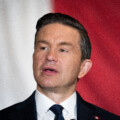
‘A good speech—but not a lot is new’: Did Poilievre’s big speech on Trump, China, and the economy hit the mark?
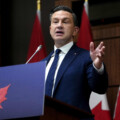
Poilievre stays the course on Trump—but is it enough?
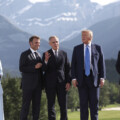
Why Canada is the logical home for a new allied defence bank

How the resource royalty rollercoaster continues to shape Alberta’s budgets

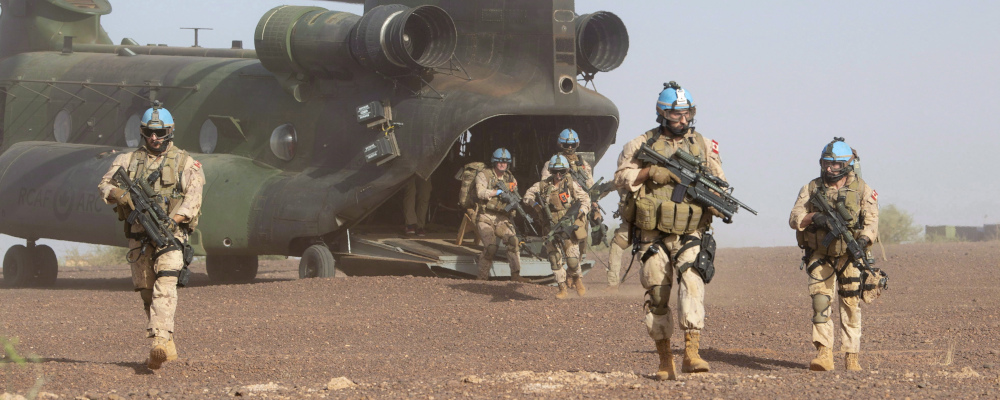

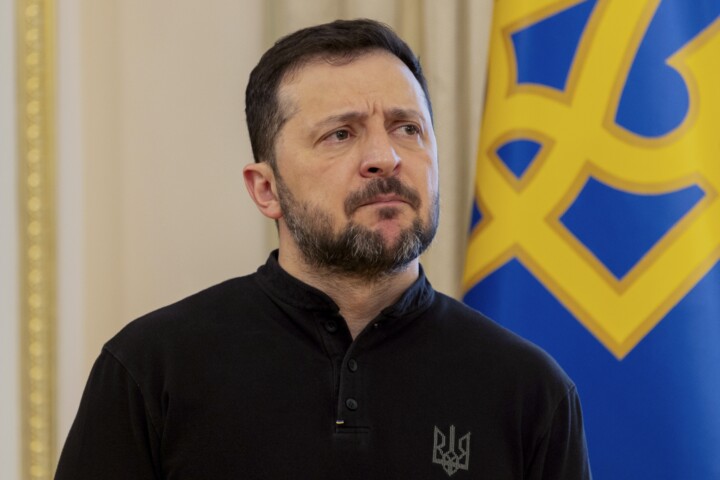

Comments (0)